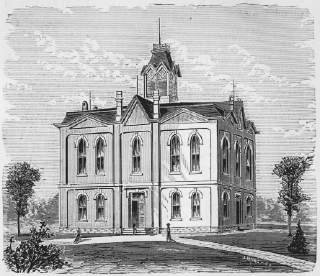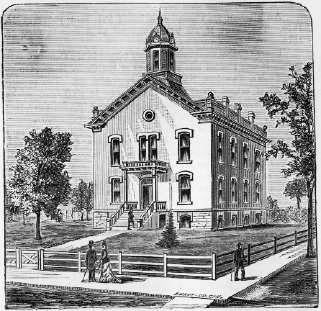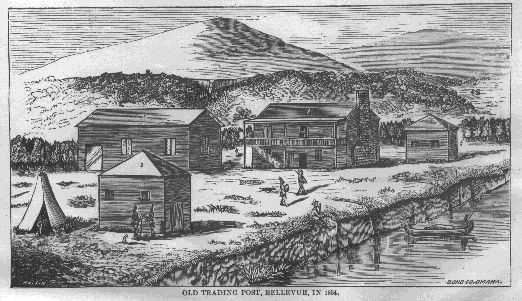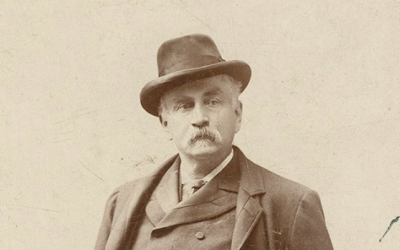
Gage County Courthouse, Beatrice. From Johnson’s History of Nebraska (Omaha, 1880)
“Our work is done,” wrote Harrison Johnson (1822-1885) as he concluded his History of Nebraska, published in 1880. “The volume is completed, and only awaits the Introduction. The printers are clamoring for this, and only a few more lines and the History of Nebraska, on which we have spent so many anxious hours, will be in type for the use of our numerous friends and subscribers, who are found all over the State, and, indeed, all over the country.”
Johnson dedicated his work, the state’s first extended history, “[t]o the People of the State of Nebraska: Through whose large enterprise, indomitable energy and great liberality, in the brief space of twenty-five years, an unorganized Territory has developed into a prosperous Commonwealth, that now occupies a proud and important position, politically and commercially, in the Union of States.”

Hall County Courthouse, Grand Island. From Johnson’s History of Nebraska (Omaha, 1880).
The author wrote: “The work has been no sinecure. It covers the history of sixty-five counties, extending over a State of 80,000 square miles, and illustrates a period of time–the most eventful of the Nation’s existence–of a quarter of a century.” He told his readers that his aim was to present details of Nebraska’s topography, climate, soil, timber and water supply, railroads, and religious and educational advantages in a “condensed, reliable and readable form” for the benefit of prospective settlers.
Johnson, a native of Ohio who had entered Nebraska Territory in 1854, represented Douglas County for two terms in the territorial legislature and served on the territorial board of agriculture. About 1880, the year his History was published, he moved to Brown County, Nebraska, taking up a homestead on Plum Creek near Johnstown. He died October 6, 1885.

Fur trading post at Bellevue, 1854. From Johnson’s History of Nebraska (Omaha, 1880).
A brief biography included in an 1887 publication of the Nebraska State Historical Society said:
“Mr. Johnson, being one of the first settlers in the territory, an active participant in all that was going on, became well-acquainted with its history. . . . He was a deep thinker, good scholar, and writer. He was widely and favorably known all over the state, in the advancement and development of which he always took a lively interest.”
– Patricia C. Gaster, Assistant Editor / Publications




